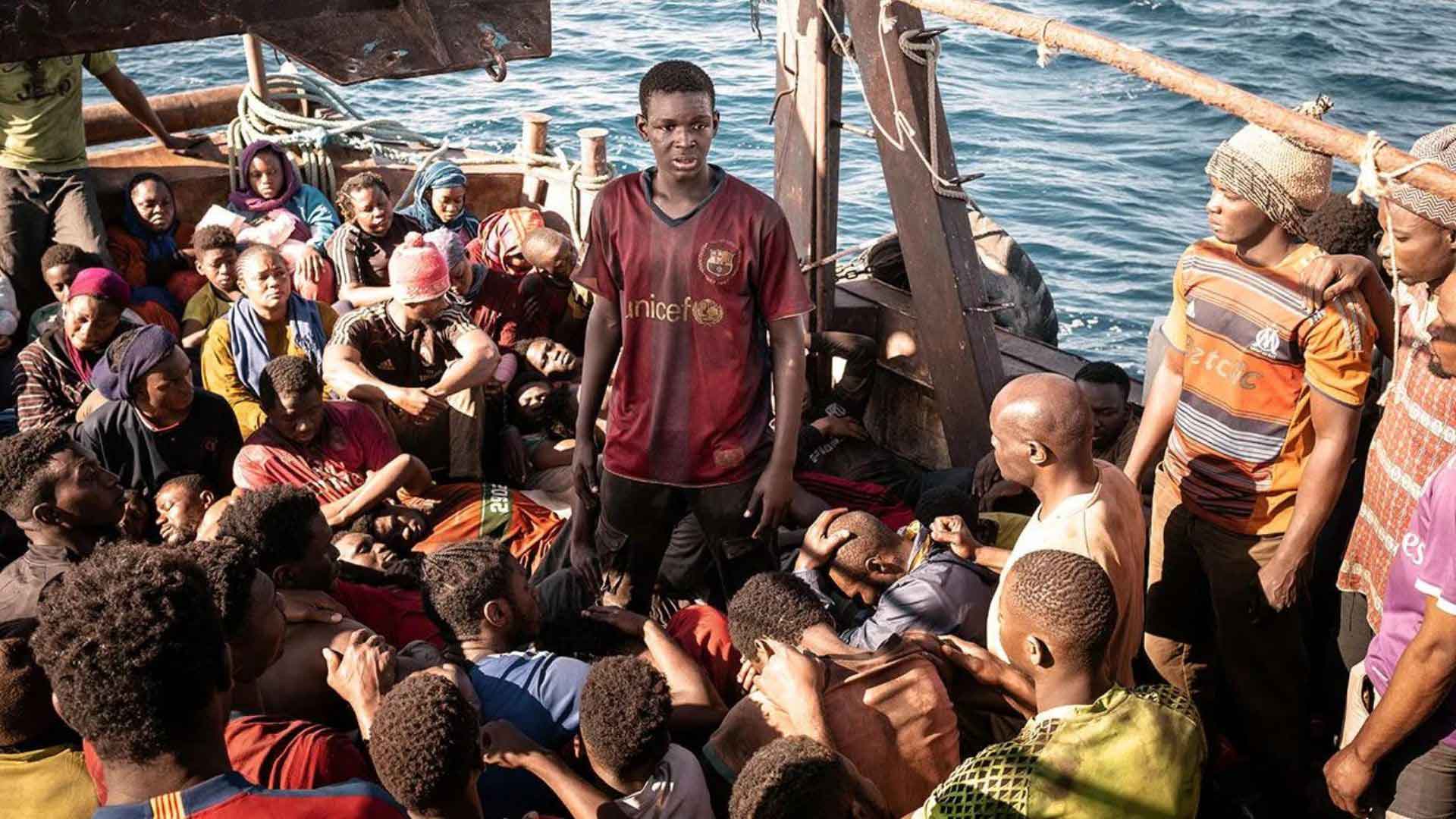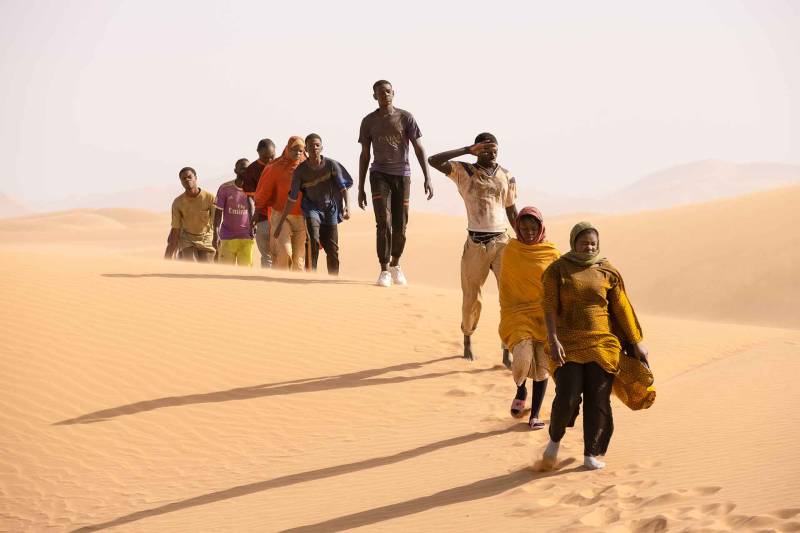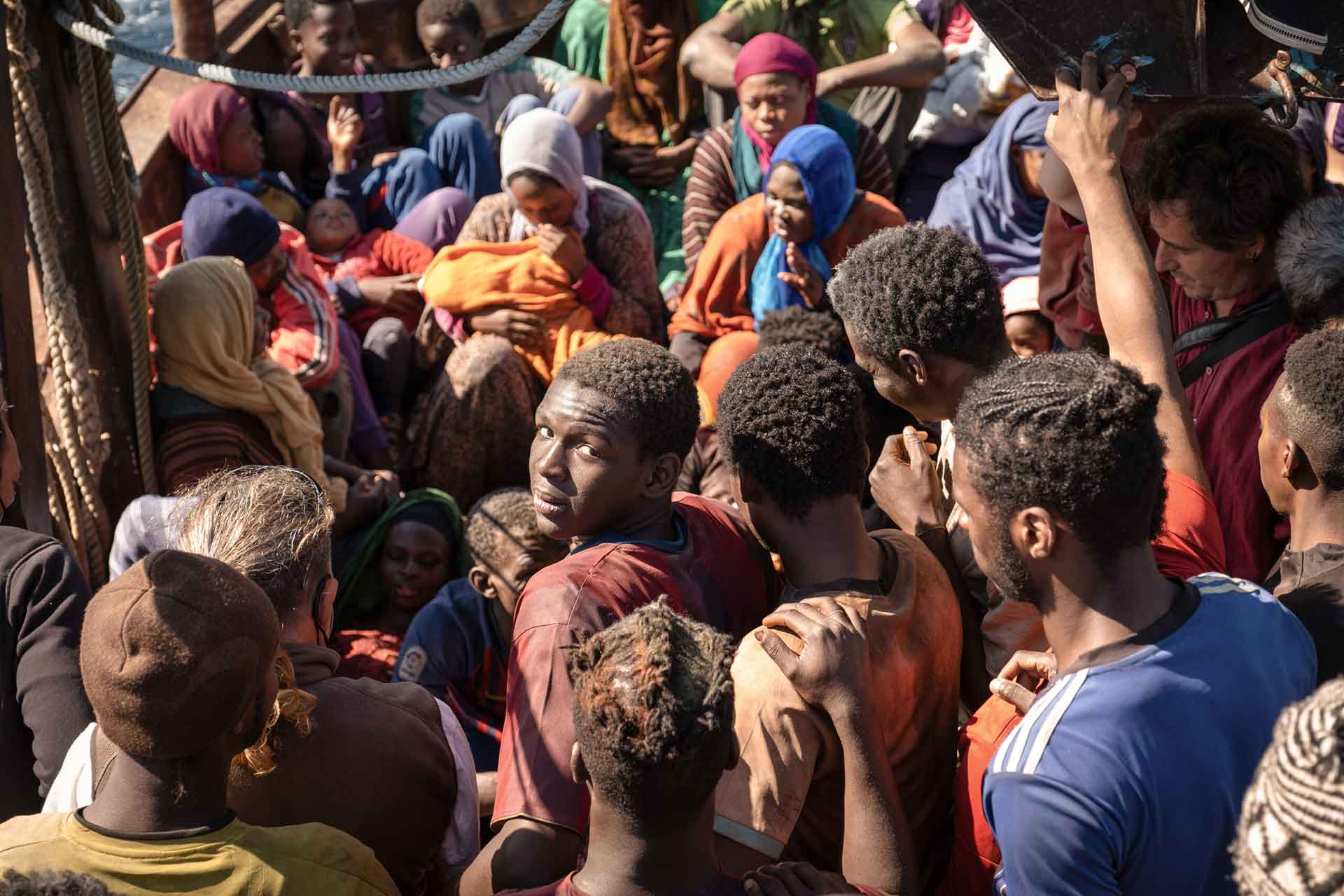Seydou and Moussa, the easygoing cousins at the center of Italian director Matteo Garrone’s eye-opening drama Io Capitano, are not typical refugees. The teenagers aren’t compelled to leave their Senegal homes because of political unrest, violence or poverty. They aren’t starving. They don’t need to support their families, not just yet.
But they dream, naively, of writing and recording songs and becoming such big stars that “white people will ask for our autographs.” And that dream, they have convinced themselves, can only be attained in Europe.
Nominated for the Academy Award for International Feature Film, Io Capitano (opening Friday, Feb. 23 in San Francisco, and in outlying Bay Area cities throughout March) arrives with the stamp of a social-issue film. To be sure, most stories about people leaving their native land in search of better opportunities derive from an underlying problem or injustice.

But Seydou and Moussa’s arduous endeavor is one of choice, not desperation. And because the filmmakers opt not to show the worst brutalities that the young men and other refugees endure on their journey from Dakar through Senegal, Mali, Niger and Libya to the port of Tripoli, Io Capitano plays more like a high-stakes adventure story than a message movie. Ultimately, and most satisfyingly, Io Capitano reveals itself as a coming-of-age tale marked by a loss of innocence.
Put another way, I am pleased to report that Io Capitano is not a depressing slog through the sand and mud. The youth and strength of the protagonists, along with their implicit potential, infuses the film with optimism, regardless of their situation. While danger and misfortune hover all around — opportunistic fake-passport dealers, corrupt border guards, predatory human smugglers, the unforgiving Sahara Desert itself — we sense that Seydou (played by Seydou Sarr) and Moussa (Moustapha Fall) will make it through their unanticipated ordeal.




